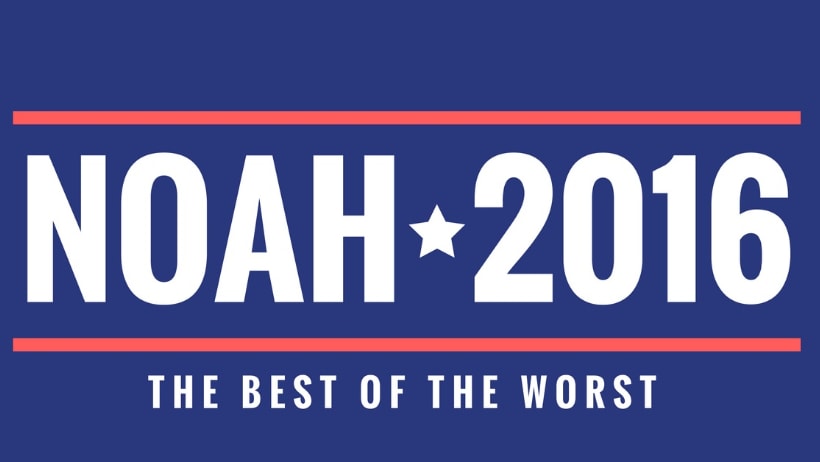I’m sure by this point in the election cycle, you’ve heard plenty of people from all political persuasions talking about the dilemma of choosing the “lesser of two evils.” Though the label “evil” might be intended as hyperbole, that doesn’t change the fact that our two major parties nominated candidates who are viewed unfavorably among a significant number of people, even from within their own parties.

Our Torah portion this week is also about a man who, as some scholars suggest, was not necessarily an ideal leader, but was simply the best choice available. This week we read parshat Noach, which tells of the evil impulses running rampant in society, Noah’s building of the ark, a covenant with God through a rainbow, and the building of a tower to approach God. Noah is the man in charge. He receives God’s call to build the ark and the call to put his family and pairs of animals on this vessel. And, when the flood waters have subsided, he is supposed to regenerate the earth and be in covenant with God. One can imagine this to-do list and the weight of responsibility here sitting heavily on Noah’s shoulders.
Even among the great commentators on our Torah text there is debate over who Noah was for his generation, in our story, and in our lives. Noah is referred to as “Ish tzadik b’dorotav,” a righteous person in his generation. The commentators question what exactly that means. Is he righteous compared to others in his generation, thus if he’d been in another time (for example among Abraham or Moshe) he wouldn’t be that great? Or is it suggesting that in spite of his generation he is still a good person? Furthermore, did he do enough to try to save others like Abraham did with S’dom and Gomorrah or like Moshe in response to the golden calf? In both of these cases, our people’s leaders fought to save more people, while Noah doesn’t appear to save anyone but himself and his family.
The question remains is Noah to be lauded for his work or is he simply the best of the worst? While I’m not sure there is ever anything to be gained by making these subjective comparisons, I still wonder what Noah’s place is in our tradition. He is our prime example of at least relative righteousness, standing up when no one else had the courage or conviction to do so. However, he later acts immodestly when he disrobes in front of his sons. He goes to work to save other living beings, but does he go far enough to try to save other humans?
Sometimes the good we are able to do is limited by surrounding factors, but that doesn’t mean we shouldn’t try, and it doesn’t mean we should resort to a “best of the worst” mindset. The lesson of Noah is to be our best possible selves, no matter the circumstances.
-Rabbi Eve Posen
Source: Noah for President – Parshat Noach 5777 – Rabbi Eve Posen



